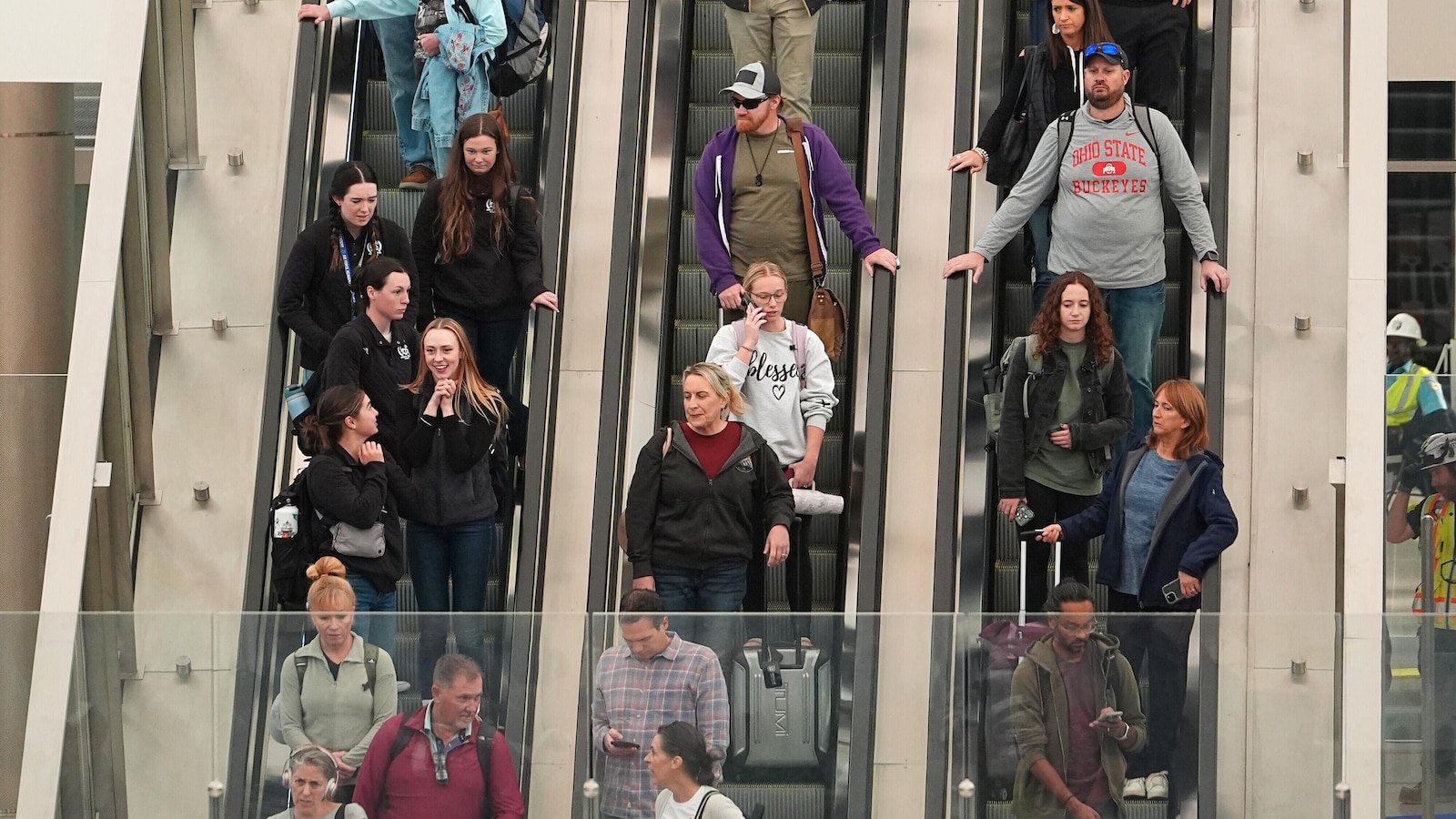By Michael Thompson, The Appleton Times
Hundreds of flights at some of the busiest airports across the United States have been canceled this weekend, as airlines grapple with a government-ordered slowdown triggered by the ongoing federal shutdown. The disruptions, which began on Friday, stem from staffing shortages among air traffic controllers who have been working without pay for nearly a month, leading to increased sick calls and mandatory overtime.
According to data from FlightAware, a flight tracking website, more than 1,000 flights were canceled on the first day of the slowdown. Over 700 additional cancellations were reported for Saturday, a typically slower travel day. These figures represent only a fraction of the nation's overall air traffic, but experts anticipate the numbers will climb if the shutdown persists.
The Federal Aviation Administration (FAA) has implemented reductions starting at 4% of flights at 40 targeted airports, with plans to increase that to 10% over the coming week. Transportation Secretary Sean Duffy warned on Friday that further cuts could be necessary if more controllers are absent due to the shutdown's financial strain.
Air traffic controllers, represented by the National Air Traffic Controllers Association, have been without paychecks since the shutdown began, prompting many to call in sick amid existing staffing shortages. The association reports that most controllers are working mandatory overtime six days a week without compensation, and some have taken second jobs to cover bills.
Travelers have expressed frustration and uncertainty about the unfolding situation. Michele Cuthbert, a resident of Columbus, Ohio, voiced concerns about her upcoming flight to Dallas.
“I just don’t want to be stranded at the airport sleeping on a bench,”she said.
While Friday's operations remained largely on schedule for many, with affected passengers able to rebook quickly, the ripple effects are already apparent. Rental car companies noted a surge in one-way reservations, and some travelers are opting to cancel their flights entirely to avoid potential stranding.
The shutdown's impact extends beyond passenger travel, threatening the broader economy. Nearly half of all U.S. air freight is transported in the underbellies of passenger planes, and disruptions could lead to higher shipping costs passed on to consumers, according to Patrick Penfield, a professor of supply chain practice at Syracuse University.
Greg Raiff, CEO of Elevate Aviation Group, highlighted the potential for widespread economic fallout.
“This shutdown is going to impact everything from cargo aircraft to people getting to business meetings to tourists being able to travel," he said. "It’s going to hit the hotel taxes and city taxes. There’s a cascading effect that results from this thing.”
As the Thanksgiving holiday approaches, analysts warn that intensified cancellations could exacerbate the chaos, affecting tourism-dependent cities and delaying holiday shipments to store shelves. The slowdown comes at a particularly inopportune time, with air travel volumes expected to surge in the coming weeks.
The government shutdown, now in its extended phase, has sparked political finger-pointing. Republicans have decried Democrats' latest shutdown offer, with weekend votes remaining unclear, according to ongoing updates. Meanwhile, a judge has outlined a path for continuing SNAP benefits amid the impasse, providing some relief to affected federal programs.
In related international news, a U.S.-led coordination center has taken control of aid efforts in Gaza amid the Israel-Gaza conflict, though this has no direct bearing on the domestic aviation issues. Domestically, former President Donald Trump has drawn attention by appearing to link a Walmart Thanksgiving meal deal to broader economic indicators, adding to the shutdown's political backdrop.
Industry observers emphasize that the current reductions, while manageable so far, could snowball if the shutdown drags on. The FAA's targeted approach focuses on high-traffic hubs, but Secretary Duffy's comments suggest flexibility for deeper cuts if controller absences worsen.
Economic experts like Penfield point to the interconnectedness of air travel with supply chains. With freight disruptions looming, businesses may face delays in getting products to market, potentially driving up prices just as holiday shopping ramps up. Raiff's assessment underscores the domino effect on sectors like hospitality and manufacturing, where missed meetings and reduced tourism could lead to significant revenue losses.
Passengers like Cuthbert represent the human face of the crisis, with many reevaluating travel plans amid the uncertainty. As cancellations mount, airlines are working to minimize inconvenience, but the lack of a shutdown resolution leaves the future of U.S. air travel in limbo.
Looking ahead, the coming days will be critical. If the slowdown escalates to 10% as planned, and possibly beyond, the disruptions could become widespread, affecting not just holiday plans but the national economy at large. Officials and industry leaders continue to monitor the situation closely, hoping for a swift resolution to avert further upheaval.
